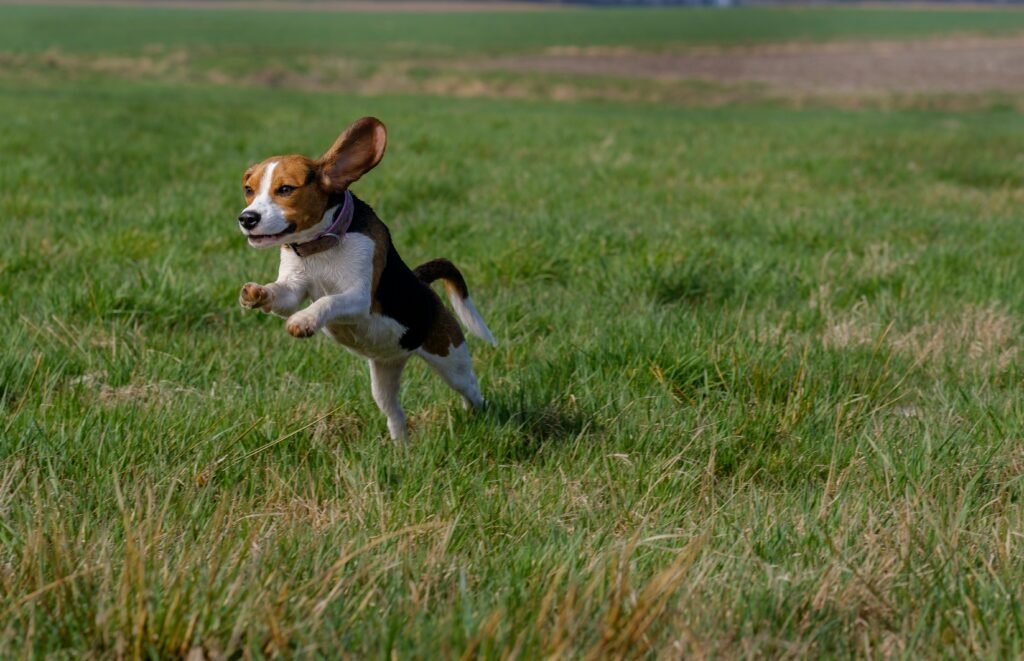How Old Do Beagles Live? Complete Guide
Beagles are beloved companions known for their playful nature and affectionate demeanor.
As a responsible pet owner, understanding your Beagle’s lifespan is crucial for providing the best possible care.
Let’s explore the factors influencing how long Beagles live and how you can ensure a happy, healthy life for your furry friend.
About The Beagle Breed
The Beagle breed is characterized by its friendly temperament and keen sense of smell.
Originally bred for hunting, Beagles have adapted to become popular family pets due to their affectionate nature and adaptability.

They thrive in loving home environments and enjoy being part of the family, making them excellent companions for both individuals and families alike.
How Old Do Beagles Live?
Beagles typically live between 12 to 15 years, but several factors can influence their lifespan. Genetics, environment, diet, and healthcare play significant roles in determining how long a Beagle lives.
Providing proper care and attention, including regular vet check-ups and a balanced diet, can help maximize a Beagle’s lifespan and ensure a high quality of life throughout their years.
What Is The Average Lifespan Of A Beagle?
The average lifespan of a Beagle ranges from 12 to 15 years, although individual lifespans may vary.
Factors such as genetics, diet, exercise, and overall healthcare play crucial roles in determining a Beagle’s lifespan.
By providing proper care and attention, Beagle owners can help ensure their furry companions live long, healthy lives filled with love and happiness.
What Does the Beagle Life Cycle Look Like?
The Beagle life cycle consists of several stages, including puppyhood, adolescence, adulthood, middle age, and senior years.
Each stage comes with its own set of developmental milestones and care requirements.
From playful puppyhood to the more relaxed pace of senior years, understanding the Beagle life cycle can help owners provide appropriate care and support for their furry friends at every stage of life.
Why Do Some Beagles Live Longer Than Others?
Several factors can influence why some Beagles live longer than others. These factors include nutrition, environmental conditions, genetics, breeding history, and healthcare.

By prioritizing proper nutrition, regular exercise, preventive healthcare, and attention to genetic health issues, Beagle owners can help maximize their furry companions’ lifespan and quality of life.
Here are the reasons “Why Some Beagles Live Longer Than Other”:
1. Nutrition
A balanced diet is essential for supporting overall health and longevity in Beagles. Providing high-quality food tailored to their nutritional needs helps prevent obesity and related health issues.
2. Environmental Conditions
The environment in which a Beagle lives can impact its lifespan. A safe, stimulating environment with proper shelter and exercise promotes overall well-being and longevity.
3. Sex
Gender can play a role in the Beagle lifespan, with females often living slightly longer than males on average. However, individual health and genetics also contribute to longevity.
4. Genes
Genetics plays a significant role in determining a Beagle’s lifespan. Like all breeds, Beagles may inherit certain genetic health issues that can impact their longevity.
5. Breeding History
The breeding history of a Beagle can influence its lifespan. Responsible breeding practices aimed at reducing hereditary health issues can contribute to longer, healthier lives.
6. Healthcare
Regular veterinary check-ups, vaccinations, and preventive care are essential for maintaining Beagle health and detecting potential issues early on.
Hereditary Diseases In Beagles
Despite being generally healthy dogs, Beagles are prone to certain hereditary diseases, including ear infections, eye conditions, and hip dysplasia.
Regular veterinary care and preventive measures can help manage these conditions and promote a longer, healthier life.
Ear infections
Beagles have long, floppy ears that can trap moisture and debris, leading to infections if not properly cleaned and maintained.
Eye conditions
Beagles may be prone to eye problems such as glaucoma and cataracts, which can affect vision and overall quality of life.
Hip dysplasia
Hip dysplasia is a common orthopedic condition in Beagles, causing pain and mobility issues, especially as they age.
The 5 Life Stages of a Beagles
Understanding the various stages of a Beagle’s life is essential for providing proper care and support at each milestone.
From the vulnerable newborn stage to the dignified senior years, each phase brings unique challenges and joys.
Let’s explore the five life stages of a Beagles in detail:
1. Newborn
A Beagle enters the world as a helpless newborn, relying entirely on its mother for warmth, nourishment, and protection.
With closed eyes and undeveloped senses, the newborn Beagle experiences rapid growth and development in the safety of its mother’s care.
As the days pass, the newborn begins to gain strength, gradually opening its eyes to the world around it.
2. Puppy
The puppy stage marks a period of exploration and discovery for young Beagles. As their eyes open and senses awaken, puppies become increasingly curious about their surroundings.
Playfulness and vocalization become integral parts of their daily routine as they learn to interact with littermates and humans alike. Weaning from mother’s milk begins, leading to the introduction of solid food and eventual independence.
3. Adolescent
With the onset of adolescence, Beagle puppies undergo significant physical and behavioral changes. As they approach six months of age, they transition from puppyhood to young adulthood.
Dietary adjustments may be necessary, and continued growth occurs at a slower rate.
This stage is crucial for laying the foundation for adulthood through proper training and socialization.
4. Adult
The adult stage heralds the peak of physical maturity for Beagles.
By around 18 months, they have reached their full size and weight, assuming the role of responsible canine citizens. Regular exercise, mental stimulation, and socialization are essential during this stage to maintain their health and happiness.
Adult Beagles thrive on routine and structure, enjoying a balance of activity and relaxation in their daily lives.
5. Senior
As Beagles enter their senior years, they undergo gradual changes that signal the onset of aging. While there’s no precise age at which a Beagle becomes a senior, signs typically emerge between 7 to 10 years old.
Decreased energy levels, changes in mobility, and a reduced interest in physical activities are common. Adjustments to diet, exercise, and healthcare become necessary to ensure a comfortable and fulfilling life for senior Beagles.
Improving Your Beagle’s Lifespan
Improving your Beagle’s lifespan involves implementing various strategies aimed at enhancing their overall health and well-being throughout their life stages.

By prioritizing factors such as nutrition, exercise, mental stimulation, and preventive healthcare, you can help ensure your Beagle enjoys a long, happy, and fulfilling life.
Let’s delve into each aspect in detail:
Nutrition
Providing a balanced and nutritious diet is crucial for supporting your Beagle’s health and longevity. Choose high-quality dog food that is specifically formulated for Beagles’ nutritional needs, taking into account factors such as age, size, and activity level.
Avoid overfeeding and excessive treats, as obesity can lead to various health issues and shorten your Beagle’s lifespan.
Consult with your veterinarian to determine the best diet plan for your Beagle’s individual needs.
Exercise
Regular exercise is essential for keeping your Beagle physically fit and mentally stimulated. Beagles are an active breed that enjoys daily walks, playtime, and interactive games.
Aim for at least 30 minutes to an hour of exercise each day to prevent obesity, promote cardiovascular health, and alleviate boredom.
Tailor the exercise routine to your Beagle’s age, fitness level, and preferences, ensuring a balance of physical activity and mental enrichment.
Mental Stimulation
Engaging your Beagle’s mind with stimulating activities and enrichment exercises is just as important as physical exercise. Provide puzzle toys, interactive games, and training sessions to keep your Beagle mentally sharp and engaged.
Beagles are intelligent dogs that thrive on mental challenges and problem-solving tasks.
Regular mental stimulation not only prevents boredom but also strengthens the bond between you and your Beagle.
Regular Veterinary Care
Schedule regular check-ups with your veterinarian to monitor your Beagle’s health and address any potential issues early on. Routine vaccinations, parasite prevention, and dental care are essential aspects of preventive healthcare.
Your veterinarian can also guide nutrition, weight management, and age-appropriate screenings to ensure your Beagle remains healthy and happy throughout their life.
Preventive Measures
Take proactive steps to protect your Beagle from potential health risks and hazards. This includes keeping up-to-date with vaccinations, administering parasite preventatives, and maintaining a safe and secure environment.
Preventive measures also extend to grooming practices, such as regular ear cleaning, dental care, and flea and tick control.
By minimizing exposure to illness and injury, you can help maximize your Beagle’s lifespan and quality of life.
Quality of Life
Above all, prioritize your Beagle’s overall quality of life by providing love, attention, and companionship. Create a nurturing and stimulating environment that meets their physical, mental, and emotional needs.
Spend quality time together, engage in bonding activities, and foster a strong relationship built on trust and mutual respect.
By enriching your Beagle’s life with love and care, you can help ensure they live to their fullest potential and enjoy many happy years by your side.
How Can I Keep My Beagle Healthy for Life?
To ensure your Beagle enjoys a long, healthy life, follow these tips:
Feed Your Pet Quality Dog Food
Choose a high-quality dog food formulated for Beagles’ nutritional needs and avoid overfeeding to prevent obesity.
Encourage Regular Exercise
Provide daily exercise and playtime to keep your Beagle physically fit and mentally stimulated.
Have Your Dog Spayed or Neutered
Spaying or neutering your Beagle can prevent unwanted pregnancies and reduce the risk of certain health issues, so it’s generally recommended by veterinarians.
Practice Preventative Medicine
Stay up-to-date with vaccinations, parasite prevention, and regular veterinary check-ups to detect and address health issues early on.
Reduce the Risk of Trauma
Keep your Beagle safe from accidents and injuries by supervising outdoor activities and providing a secure environment.
See the Vet Regularly
Schedule regular veterinary check-ups to monitor your Beagle’s health and address any concerns promptly.
Beagle Life Expectancy Myths
Dispelling common myths about Beagle lifespan is essential for promoting accurate understanding and responsible pet ownership.
Avoid misinformation and seek reliable sources of information to make informed decisions for your Beagle’s well-being.
FAQs: Beagle’s Lifespan
What is the average lifespan of a Beagle?
Beagles typically live between 12 to 15 years on average.
How can I extend my Beagle’s lifespan?
Providing a balanced diet, regular exercise, preventive healthcare, and a nurturing environment can help extend your Beagle’s lifespan.
Are there specific health issues Beagles are prone to?
Beagles may be prone to health issues such as ear infections, obesity, allergies, and genetic conditions like hip dysplasia.
How often should I take my Beagle to the vet?
It’s recommended to schedule regular veterinary check-ups at least once a year, or more frequently for senior Beagles or those with health issues.
What signs should I look out for as my Beagle ages?
Watch for changes in appetite, energy levels, mobility, and behavior, and consult your vet if you notice any concerning symptoms or behaviors.
Can I Let My Beagle Off-Leash?
While Beagles have a strong prey drive and may be prone to wandering, proper training and supervision can help them safely enjoy off-leash activities.
How Do I Feed My Beagle Properly?
Feed your Beagle a balanced diet of high-quality dog food, dividing meals into appropriate portions to prevent overfeeding and obesity.
Can I Give My Beagle Table Scraps?
Avoid feeding your Beagle table scraps, as human food can be high in fat and unhealthy for dogs. Stick to a nutritious diet formulated for Beagles’ needs.
Does My Beagle Need to Be Neutered or Spayed?
Spaying or neutering your Beagle can prevent unwanted pregnancies and reduce the risk of certain health issues, so it’s generally recommended by veterinarians.
What Is the Oldest a Beagle Has Ever Lived?
The oldest recorded Beagle lived to be 27 years old, although this is exceptionally rare. Most Beagles live between 12 to 15 years with proper care and attention.
When Is a Beagle Old?
Beagles are considered seniors around 7 to 10 years old, depending on individual health and lifestyle factors. Signs of aging may include decreased activity, stiffness, and changes in behavior.
How Do Other Breeds Compare in Life Expectancy?
Compared to some larger breeds, Beagles generally have a longer lifespan, with smaller breeds often outliving their larger counterparts. However, individual factors such as genetics and care influence lifespan more than breed alone.
Conclusion
Understanding how old Beagles live involves considering various factors that influence their lifespan.
By prioritizing proper care, nutrition, exercise, and regular veterinary check-ups, you can maximize your Beagle’s chances of living a long, healthy life filled with love and joy.





